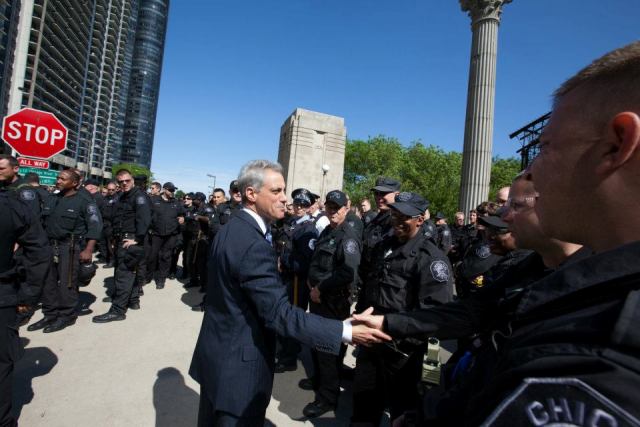City Council Overwhelmingly Approves Emanuel's 2013 Budget
By Chuck Sudo in News on Nov 15, 2012 11:20PM

Photo by Brooke Collins, City of Chicago.
In a vote that should absolutely shock no one, City Council approved Mayor Rahm Emanuel's 2013 budget today after 90 minutes of discussion and 46-3 vote. Credit Ald. Bob Fioretti (2nd), Scott Waguespack (32nd), and John Arena (45th) for applying some mucilage to an otherwise rubber stamp.
The Emanuel administration released a statement heralding the passage and reaffirming Chicago's status as the city that works (for the corporate class).
“With this budget, we build on the break from the past we began last year. By speaking honestly, thinking differently, and leading forcefully, we are giving families and companies the confidence to choose Chicago,” said Mayor Emanuel. “While other cities and states are cutting back and providing less for children and families, we are able to invest in our strengths and deliver better services without raising taxes, fines, or fees.”
Ald. Dick Mell (33rd) called the vote "probably one of the easiest votes I’ve ever taken." (Maybe Mell has a short term memory about all those 50-0 votes Richard M. Daley received from the Council.
Emanuel has touted his 2013 budget as a balanced one, with no new tax hikes or fees, but is balanced with
- $67 million of spending reforms and cuts, including $10 million in savings from strategic sourcing on city contracts and $5.8 million in information technology reforms
- $45 million in personnel savings including $20 million in layoffs, attrition and vacancy sweeps, and $5 million from partnerships with labor
- $70 million in healthcare savings
- $10 million from TIF reform
- $24 million in improved debt collection
- $42 million in additional revenue growth
- $40 million from refinancing long-term debt.
But the budget does little to nothing to address the looming pension funding crisis that could require a 150 percent property tax increase by 2016 if the Illinois General Assembly can't reach a deal on pension reform.